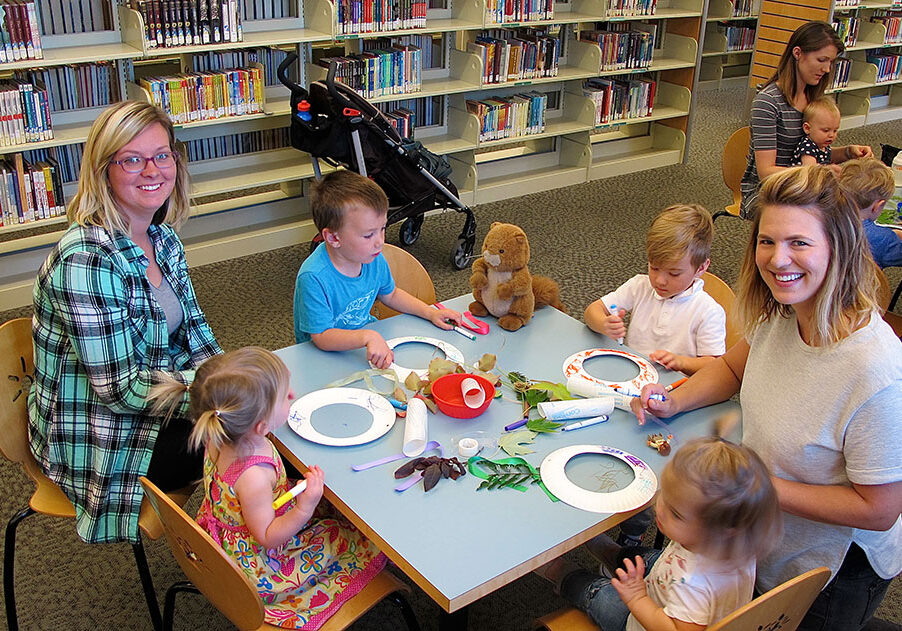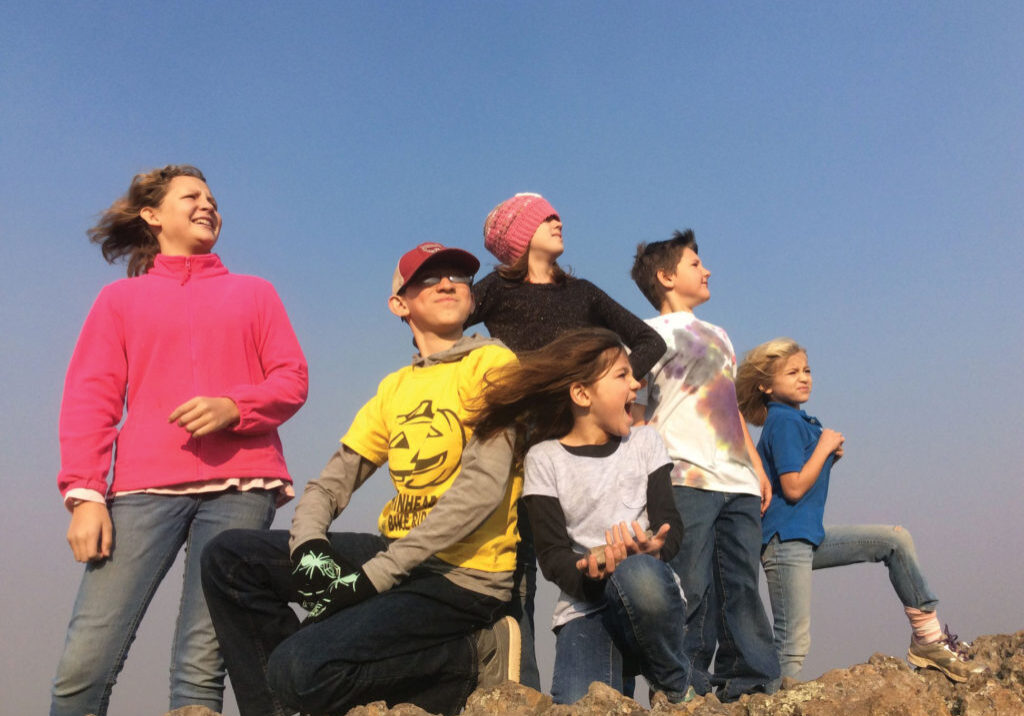Children who have well developed leadership skills are more confident, responsible and push themselves to their full potential. Leadership helps them develop better and more creative coping skills when it comes to problem-solving and project management. The art of compromise, empathy and good decision-making skills, things most parents strive to teach their children, are also important benefits of having well developed leadership skills. For some children, leadership comes naturally and for others it must be developed and encouraged over time. Either way, parents can help develop their child’s leadership qualities so that when they are ready to attend college and enter the workforce, leading others and knowing when to follow someone else’s lead are already second nature.

Set an example of good leadership
Parents can help their children develop good leadership by showing them what a good leader looks like on a daily basis. When you lead others, including your own children, try to be optimistic, a good listener, treat people fairly and do the right thing. Your children will learn these skills simply by modeling your good example.
Set children up for successful leadership
Children who are successful at the things they try are more confident and are more willing to get out of their comfort zone and help others in the future. Help build their confidence by encouraging them to try activities where they have natural strengths and talent or assist them in projects just enough to help them succeed while still allowing them the majority of the decision and work the project entails.
Communication skills are essential to good leaders
Listening and good communication are keys to making a leader successful and well-liked by peers. Encourage your child to put their communication skills into practice by developing listening skills, public speaking and expressing their frustrations in a healthy way. Parents can do this by asking their child to order their own food at a restaurant, encouraging them to approach coaches or teachers themselves when there is a problem and teaching them to ask questions after listening to a friend talking.
Good leaders are team players
School projects, team sports, clubs or being a part of a band, orchestra or choir helps children understand how to work toward a goal as a group. These experiences help your child understand how to be a good leader and when to listen to others and why both are equally important.
Good leaders master lifelong skills
Integrity, empathy, work ethic, respect, negotiation and compromise are great skills for any leader, as well as any student, employee or friend. You can encourage these skills by setting a good example and talking through situations where they were or were not utilized well. Ask your child how they would have handled a situation differently and why. Praise and encourage them when they have done a good job using these skills.
Good leaders understand the value of diversity
Everyone has different backgrounds, experiences and gifts. Encourage your children to learn about other cultures and experiences and that differences are what make us a stronger team. They can learn to stand up to those who are singled out or viewed as different from others. This is what makes a great leader.
Good leaders seek guidance
Kids who know when to problem solve and when to ask for guidance are better teammates and stronger leaders. It’s also important to offer help to others in the group who may be struggling. Lead by example and be encouraging and helpful when needed.
Good leaders have good work habits
Kids who have responsibilities at a young age are better prepared to lead others. Encourage your child to get a part time job at a young age or pick up jobs like yard work, babysitting or volunteer work so they can build their leadership skills, develop their work ethic and get experience in a variety of areas.
Good leaders manage their time well
When your child has a large project to complete, encourage them to map out their plan for getting it done on-time. Create steps and set goals to accomplish to meet the deadline. Good project management skills will serve them well as a leader and an employee in the future.
As your child develops strong leadership skills, it’s important to understand that they will not always be the person in charge. Having good leadership skills doesn’t mean you are always the one who is leading. Being respectful and willing to listen to others and compromise while not officially being the person who is “in charge” of the group is still a way to lead others. Whether your child is a natural leader or a great teammate, these leadership skills will serve them well in the future.
Extracurricular Activities that Build Leadership Skills
- Team sports – Being part of a team helps build leadership and helps kids learn to work as a group and understand the art of leading and following others.
- Student government – Being part of student council or government helps kids learn to lead and build speaking and negotiating skills
- Start your own club – If your child is interested in something specific, chances are others their age are as well. Starting their own club is a great way to learn how to lead others and share common interests.
- Volunteer work – Giving of your time helps kids put others first, work on a project for the greater good, develop a good work ethic and build leadership skills.
- Academic teams or clubs – Being part of an academic team or clubs such as robotics, mathletes, speech and debate, National Honors Society and science club are great ways to build skills in areas that interest them but also give them leadership skills they can use in college and the workforce.
- Music and arts – not everyone is drawn to team sports but being part of a choir, orchestra, band, theater or working on a creative project as a group can have the same benefits as team sports do when it comes to leadership skills.
- Scouts – Groups like Girl Scouts and Boy Scouts give kids the opportunity to work as a team and individually while helping others and being exposed to diversity, volunteer work, team building and life skills.
Posted in: Education
Comment Policy: All viewpoints are welcome, but comments should remain relevant. Personal attacks, profanity, and aggressive behavior are not allowed. No spam, advertising, or promoting of products/services. Please, only use your real name and limit the amount of links submitted in your comment.
You Might Also Like...

Your Local Library is a Hub of Activity
If a library isn’t your idea of the “happening place” in town, it’s time to walk back through the doors of your local branch. Gayle Harrington, Cottonwood’s director of library […]

How To Talk To A Teacher
A meeting between you and your child’s teacher can be a powerful tool for helping your child succeed in school. Whether scheduled by the school, requested by you, or suggested by […]

Beverly Belk – A teacher who cares — “What I was put on earth to do”
“A teacher who cares would teach under one of those shade trees if that’s all there were,” Beverly Belk remembers her master teacher saying. Over her 60-year teaching career, Beverly […]

Whittenberg Country School – An Old-Fashioned School In The 21st Century
Zach Whitten’s day-to-day operations at Whittenberg Country School look like a scene from Louisa May Alcott’s Jo’s Boys. Every school morning is awash with an exciting spectrum of possibilities for […]




